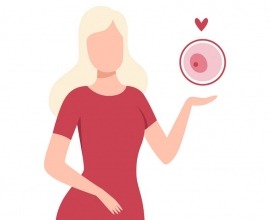Is IVF Treatment unsafe? Here’s what the scientists have to say.
According to newspaper headlines, women over 40 in Western countries are fuelling ‘IVF Tourism’ – an explosion of business for IVF clinics in Europe due to demand for the service. As it stands today, more than 4 million children have been born without issues through IVF worldwide – and popularity for IVF treatment in Europe shows no signs of slowing down. It comes naturally then that women ask a fundamental question about IVF treatment: Is it safe for my body? Concerns for safety come at the heart of every intimate procedure, and questions like this are regularly taken at IVF clinics in Europe. In this article I take a look at some medical opinions on the development of IVF, and the results of data that has been analysed by scientists across the globe.

It should be comforting to know that the International Committee Monitoring Assisted Reproductive Technologies (ICMART) reports to have collected more than 75% of global IVF activity worldwide. Figures of this ratio give us a better image of the state of IVF safety today. The committee is made up of renowned scientists and practitioners of IVF, and at their international conference in 2010 a number of speakers testified to the safety of IVF. Professor Nygren stated that, ultimately, ‘The risks are small, and need to be kept in perspective, especially when set against the potential benefit of having a child.’

The committee also noted that despite low risks, it is paramount to keep minds open in the scientific community. All the best centres in Europe, such as IVF clinics in the Czech Republic, follow the standards set by medical institutions such as ICMART. Common issues in IVF have been gradually reduced thanks to the intense scrutiny of the scientific world, and we are now at the point where large media outlets such as the BBC take note of developments in IVF technology, such as PGD Testing.
In an information oriented world it can be hard to find the right information, especially when we find so many options for cheap IVF and treatment all over the globe. My advice to anyone considering IVF is to go straight to the institutions for the facts, and examine the statements for themselves. We rely on groups like ICMART, and others, for a backbone of reliability. Your IVF should know the data and you should rely on them to point you in the right direction. As popularity grows for IVF treatment in Europe we can expect to see more media reports and medical statistics on the successes of the process for patients of all backgrounds.
Sources:
http://www.science20.com/news_articles/ivf_safe_review_current_evidence














